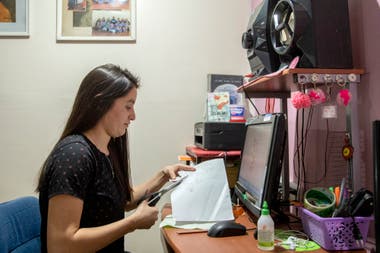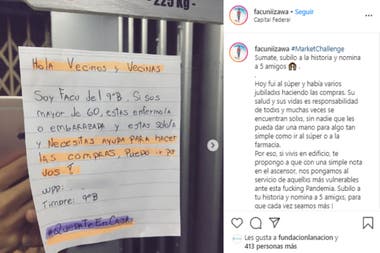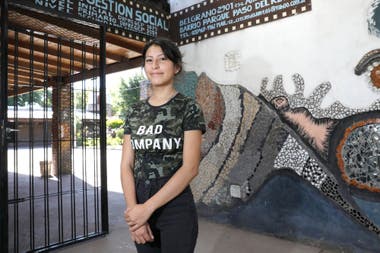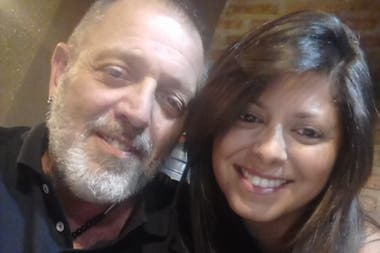“You can change the world,” Barak Obama told them when he was president of the United States to the 400 young people gathered at La Usina del Arte, during his visit to Argentina in March 2016.
There was Fernando Maldonado, invited by the Integrar Foundation who was giving him a scholarship so that he could continue his journalism studies in TEA, and felt that those words were addressed to him, that every day he tried to improve his reality and that of his neighbors in the village. 21-24.
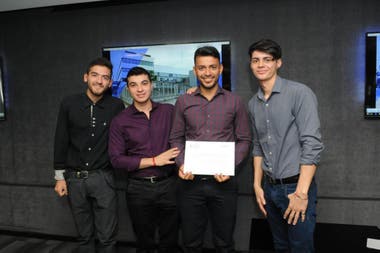
He had been advised of the day, the schedule and that he had to go in smart sport. Fernando arrived early, in jeans, a white shirt and slippers, on a bicycle. “I understood that it was more sporty than elegant, and I was also very tired of pedaling,” he laughs today. And he adds: “When I came in, they were all in suits and the women were very well groomed.”
The question that Fernando Maldonado asked Obama Source: C5N
09:08
I knew there was a possibility – very remote – to ask Obama a question. As with all the other challenges he had in his life, Fer wanted to be prepared to take advantage of it. “I prepared myself for that, I chatted with my friends at work about what they would ask Obama and I got two questions written to me, and the fact that I was there, where one of the most important people in the world was going to be, was very inspiring “, rescues Fernando.
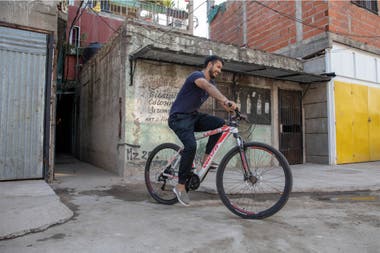
They placed him at the back of the auditorium, in a dark place, which the cameras never aimed at. In the distance I could see a figure walking and talking without stopping. He listened to the Spanish translation from an earphone and every time he raised his hand to ask.
Near the end of the talk, Obama intentionally sought out the “invisibles” of the room, and pointed to Fernando to get the microphone. Luis Vedoya, who at that time was the executive director of the Integrar Foundation and was in charge of the group of scholars who had gone to the event, thought: “Tomorrow the foundation closes me.” Fer trembled like a leaf, I had not known what to ask “
The kid from the neighborhood who was able to leave the villa and buy his own house
05:23
Fernando's mind went blank. He did not even manage to introduce himself. He grabbed the microphone and read the question he had written down: “How can it be that the same society that voted for you is thinking of voting for Donald Trump?”
What followed was a moment of generalized confusion. Fernando was the only one who asked him a question in Spanish and Obama did not get the translation to answer. He finally did, clearly annoyed with having to explain why the Republican party was gaining so much ground in his country.
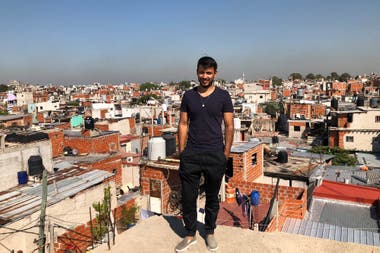
For Vedoya that moment was the materialization of the importance of giving opportunities to children from vulnerable contexts. “There I realized that Fer had started to raise his hand when he finished elementary school and then high school, when he left the comfort zone, when he started studying a career, when he bocharon, when he recurs, when he finally approved, when He came with a title to his house, when he went to Obama, when he raised his hand and asked a very fatal question, “rescues Vedoya.
There were several media that raised that incisive question of Fernando. Suddenly the phone did not stop ringing and came out on all the radios. In LA NACION, an opinion column called “The question that bothered Obama” came out. Thanks to that note, he was awarded a scholarship to study the Postgraduate in Journalism at the University of El Salvador. “During the internship I had the opportunity to be in a newsroom, to be able to write and have my name signed in a note, it was a lot of emotion, you asked me how I did it and what I did, but it happened”, says Fernando.
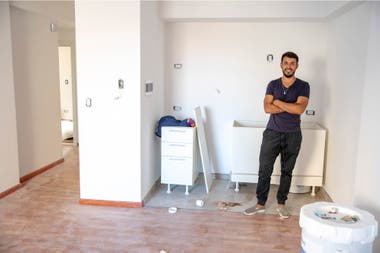
Also the product of that question, he was called at the time of the United States Embassy in Argentina to apply for an exchange trip for Latin American journalists.
“I was in Washington with colleagues from other countries, I was impressed by how neat everything was, like in the movies, and there were all high-end cars, we went through different newsrooms and learned a lot,” says Fernando.
Today Fernando coordinates the newspaper El Católico de Caacupé of the parish of the village 21-24, where he began to take his first steps in journalism. “It's nice to be able to show what the problems of the neighborhood are, those who write are kids from here and also from outside, the important thing is to be able to give them a voice,” Fernando concludes.
.
Publicado en el diario La Nación

